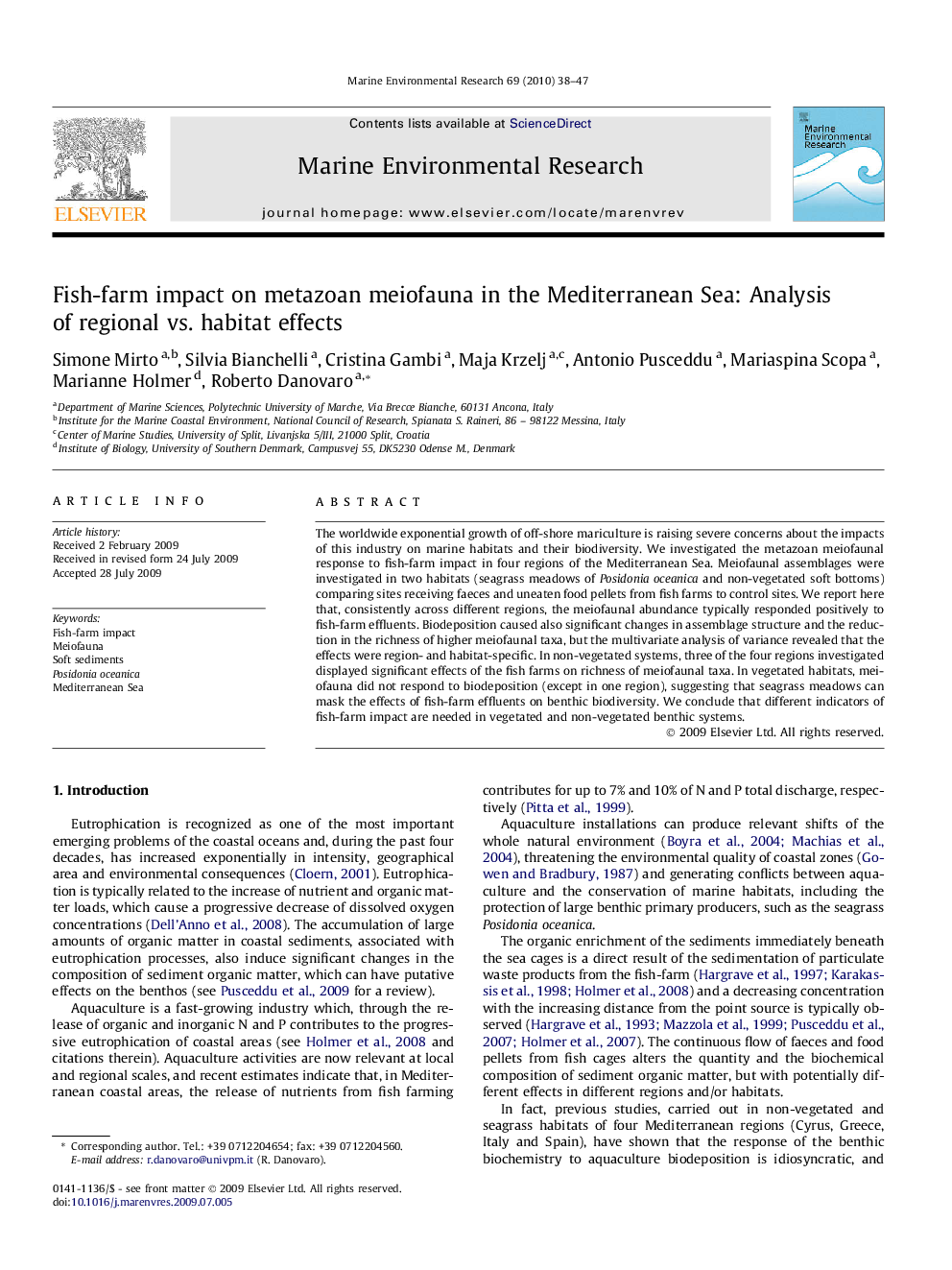| Article ID | Journal | Published Year | Pages | File Type |
|---|---|---|---|---|
| 4551266 | Marine Environmental Research | 2010 | 10 Pages |
The worldwide exponential growth of off-shore mariculture is raising severe concerns about the impacts of this industry on marine habitats and their biodiversity. We investigated the metazoan meiofaunal response to fish-farm impact in four regions of the Mediterranean Sea. Meiofaunal assemblages were investigated in two habitats (seagrass meadows of Posidonia oceanica and non-vegetated soft bottoms) comparing sites receiving faeces and uneaten food pellets from fish farms to control sites. We report here that, consistently across different regions, the meiofaunal abundance typically responded positively to fish-farm effluents. Biodeposition caused also significant changes in assemblage structure and the reduction in the richness of higher meiofaunal taxa, but the multivariate analysis of variance revealed that the effects were region- and habitat-specific. In non-vegetated systems, three of the four regions investigated displayed significant effects of the fish farms on richness of meiofaunal taxa. In vegetated habitats, meiofauna did not respond to biodeposition (except in one region), suggesting that seagrass meadows can mask the effects of fish-farm effluents on benthic biodiversity. We conclude that different indicators of fish-farm impact are needed in vegetated and non-vegetated benthic systems.
